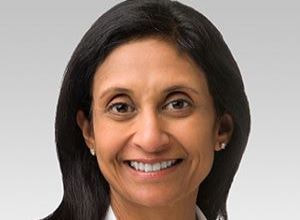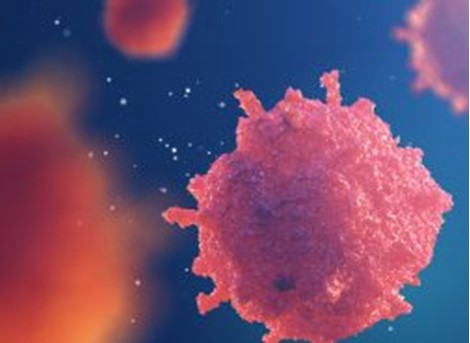|
July 2021 NOVEL THERAPY MAY IMPROVE SURVIVAL FOR MALIGNANT GLIOMASFeaturing: Maciej S. Lesniak, MD
A novel therapy engineered by Northwestern Medicine investigators improved progression-free and overall survival for patients with newly diagnosed malignant gliomas, according to results from a recent phase I clinical trial published in The Lancet Oncology. In the study, investigators evaluated the safety of a novel therapy called NSC-CRAd-S-pk7 in patients newly diagnosed with malignant gliomas. NSC-CRAd-S-pk7 is an oncolytic adenovirus delivered by neural stem cells, or progenitor cells from the central nervous system that cross the blood-brain barrier to deliver therapeutic molecules to cancer cells. “This is the first-in-human clinical trial to test the neural stem cell delivery of an engineered oncolytic adenovirus. Additionally, it is distinctive among neuro-oncology and virotherapy trials because it includes patients with newly diagnosed gliomas, rather than recurrent disease,” said Maciej S. Lesniak, MD, chair and Michael J. Marchese Professor of Neurosurgery, and senior author of the study, as well as director of neuro-oncology at the Robert H. Lurie Comprehensive Cancer Center of Northwestern University. Malignant gliomas are the most common primary brain tumors in adults, with no current effective treatment options and an average survival rate of 14 to 21 months. Glioma cells are notoriously resistant and difficult to treat, underscoring a crucial need for innovative and effective therapies that cause fewer adverse side effects than traditional therapies such as chemotherapy and radiation. Oncolytic viruses are a promising therapeutic approach in this regard, as they target cancer cells while sparing normal cells and eliciting the body’s immune response, according to the authors. Consequently, delivering drugs to the tumor site has also been a challenge because the blood-brain barrier prevents most chemotherapeutic drugs from ever reaching the brain. “Our innovative approach, which employs the use of stem cells as shuttles to deliver viruses, seeks to address this problem. Neural stem cells tend to travel within hours to areas of injury, areas of stroke or brain tumors, so they can disperse the oncolytic virus with a beautiful homogenous spread,” said Jawad Fares, MD, a postdoctoral fellow in the Lesniak laboratory and lead author of the study. To determine the safety of NSC-CRAd-S-pk7, investigators recruited patients with newly diagnosed malignant gliomas and divided into them into three cohorts. After undergoing neurosurgical resection, each cohort received varying doses of NSC-CRAd-S-pk7 into the walls of the resection cavity, followed by chemotherapy and radiation therapy 10 to 14 days after surgery. Follow-up examinations revealed NSC-CRAd-S-pk7 was safe and tolerable for patients at all doses, with average progression-free survival at nine months and overall survival at 18 months. Patients with gliomas with unmethylated MGMT promoters — DNA repair enzymes that increase cancer cell’s resistance to chemotherapy — also demonstrated improved progression-free survival and overall survival. These improved outcomes are significant as patients with newly diagnosed glioblastoma that are treated solely with radiation therapy and chemotherapy usually have an average progression-free survival of seven months and overall survival of 15 months, according to the authors. Furthermore, the findings support the continued investigation of the highest pre-determined dose of NSC-CRAd-S-pk7 in higher phase clinical trials. “The development of NSC-CRAd-S-pk7 was a beautiful bench-to-bedside story that demonstrates how the bridging of science and medicine can lead to innovative therapeutic approaches. Our research and clinical teams are dedicated to multidisciplinary collaborative work to continue to provide therapeutic hope for patients from the lab,” Fares said. Co-authors of the study include Atique Ahmed, PhD, associate professor of Neurological Surgery; Adam Sonabend Worthalter, MD, assistant professor of Neurological Surgery; Jason Miska, PhD, assistant professor of Neurological Surgery; Catalina Lee Chang, PhD, Research Assistant Professor of Neurological Surgery; Irina Balyasnikova, PhD, Associate Professor of Neurological Surgery; James Chandler, ’96 MD, ’96 GME, the Lavin/Fates Professor of Neurological Surgery; Matthew Tate, MD, PhD, associate professor of Neurological Surgery and Neurology; Priya Kumthekar, MD, ’11 GME, associate professor of Neurology in the Division of Neuro-oncology and of Medicine in the Division of Hematology and Oncology; Rimas V Lukas, MD, associate professor of Neurology in the Division of Neuro-oncology; Sean Grimm, MD, Health System Clinician of Neurology in the Division of Neuro-oncology; Ann Adams, JD, lecturer of Preventive Medicine; Christina Amidei, PhD, Research Associate Professor of Neurological Surgery; Craig Horbinski, MD, PhD, director of Neuropathology in the Department of Pathology; Hui Zhang, PhD, professor of Preventive Medicine in the Division of Biostatistics; Sean Sachdev, MD, ’16 GME, assistant professor of Radiation Oncology; and Roger Stupp, MD, the Paul C. Bucy Professor of Neurological Surgery and chief of Neuro-oncology in the Department of Neurology. Lesniak, Ahmed, Sonabend Worthalter, Miska, Lee Chang, Balyasnikova, Kumthekar, Lukas, Horbinski, Zhang, Sachdev and Stupp are members of the Lurie Cancer Center and part of the Lou and Jean Malnati Brain Tumor Institute of the Lurie Cancer Center. This work was supported by the National Institutes of Health. This article was originally published in the Feinberg School of Medicine News Center on July 29, 2021. |
Maciej S. Lesniak, MD is a chair of the Department of Neurological Surgery and professor of Neurological Surgery and Neurology - Ken and Ruth Davee Department. He received an MD from John Hopkins University and an MS from Harvard University.
Refer a PatientNorthwestern Medicine welcomes the opportunity to partner with you in caring for your patients.
|
You May Also Like
|
January 2021 |
September 2021 |





